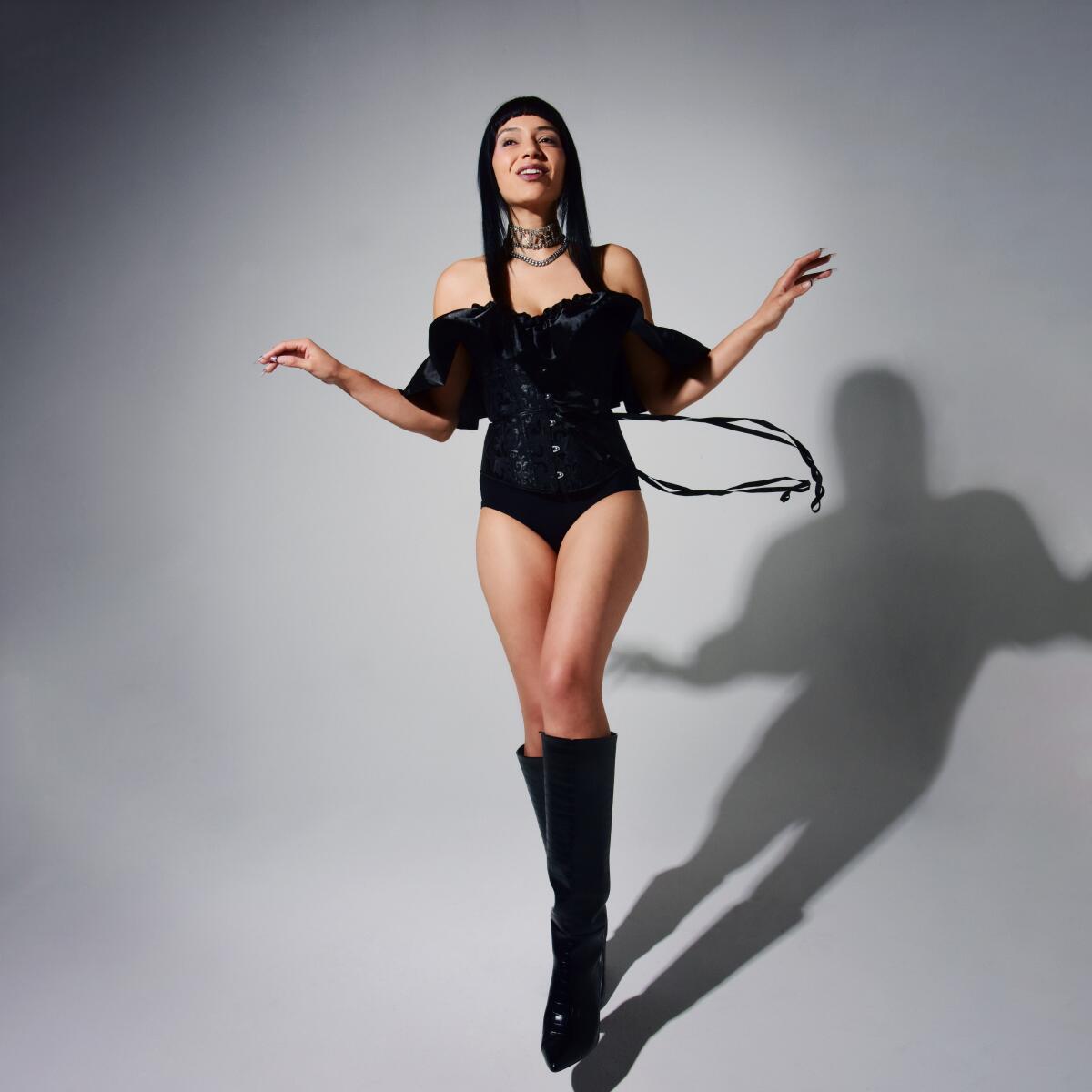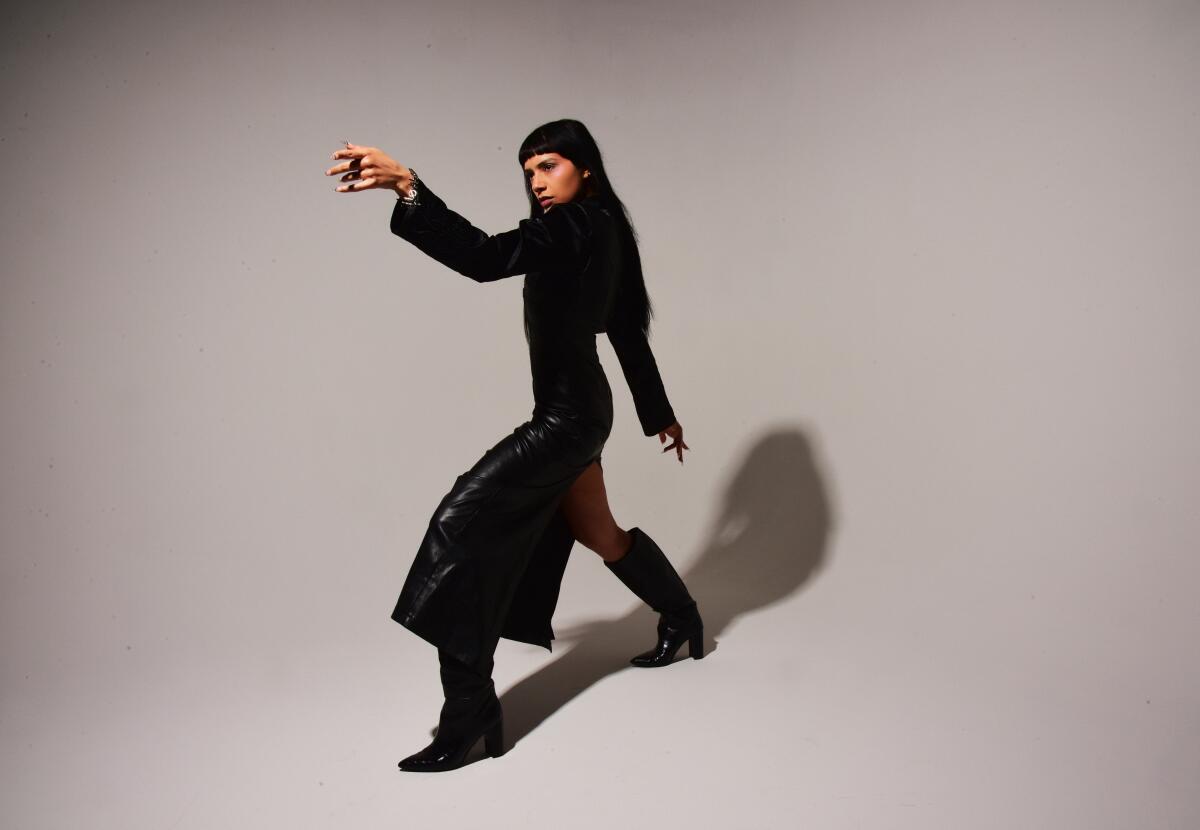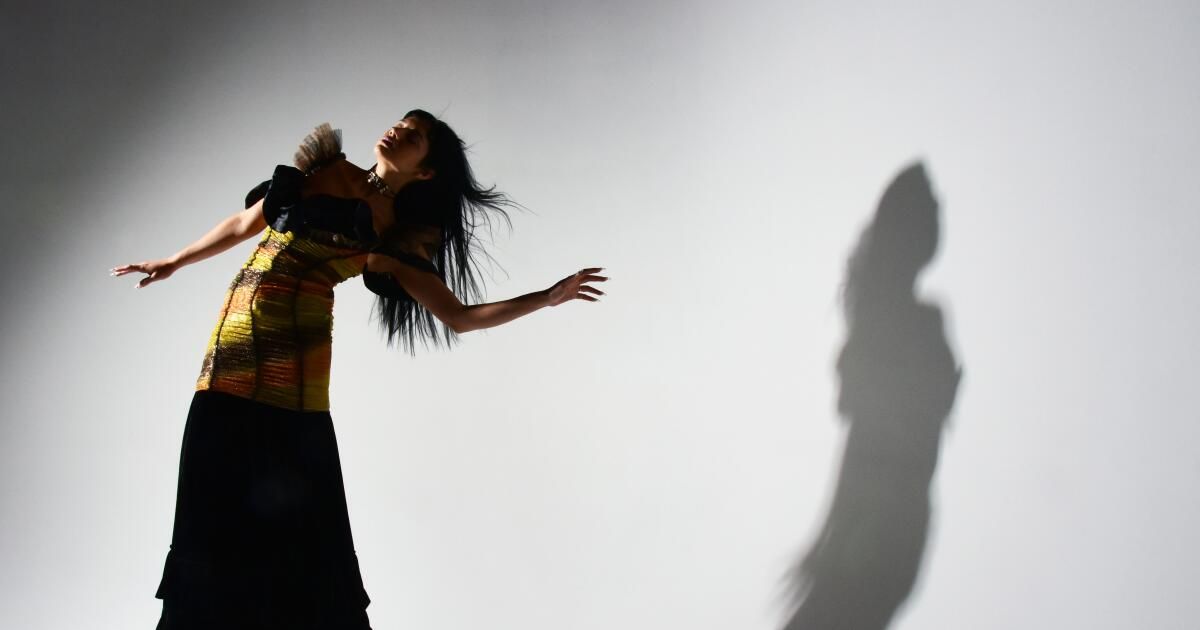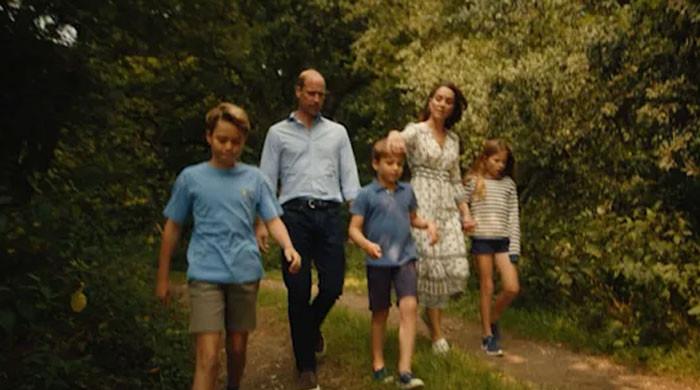Angélica García has been busy finding herself. Or, rather, to herself. The Los Angeles pop singer's new album, “Gemelo” (twin in Spanish) is a rhythmic exploration of the spiritual world and our relationship with our inner, intuitive selves.
It is also a study of dualities, whether of culture, gender or language. For the first time, García sings almost exclusively in Spanish, something she first experimented with on 2020's “Cha Cha Palace.” A return to Los Angeles from Virginia in the spring of that year led her to reconnect with her Latin heritage and , with her, her ancestry.
As a result, “Gemelo” is a fascinating blend of the mystical and the feminine, of self-love and pain, that slides effortlessly from synth-pop to cumbia and trip-hop. Songs like “Color de Dolor” or “Juanita” glide and vibrate in an infectious way, even when they channel generational trauma or commune with the dead.
“It really means a lot that I'm writing a song about intuition in Spanish and how it's connected to our ancestry, and there are people in the audience who are like, 'Yes!'” García says during a Zoom call, just after stepping off the stage at a festival in Germany. “Maybe that's my weird perspective, but that's what I do.”
Immediately after the release of her album on Friday, García spoke about the turmoil the album generated, her difficulties writing in Spanish and how creating new songs helped her know and assert herself better than ever.
There are all these dualities in “Gemelo” and a lot of self-discovery. What started that journey to explore those themes?
To be honest, that's pretty much what was coming out at the time. There was a lot of grief processing, different kinds of big life changes happening at the same time. The first song that came out was “Color de Dolor”. That represents that, because when you ask, “What is the color of pain? What is the color of pain? — can have many forms.
What kind of grief were you processing?
I was coming to terms with distancing myself from the people I loved, but also realizing that being around them didn't necessarily make me feel particularly good either. Because sometimes the people who raise you, even though there is love, that doesn't necessarily mean they see you.
There was also this strange cultural push and pull that I felt within me. At the time I was working very hard to educate myself about the ancestors and past generations of the family. The deeper I went down that rabbit hole, the more I realized that these are things that I've always felt in myself and that I'm just discovering now. So that also carries a strange sadness.
[And] Also just being a woman and feeling like I was really tired of people speaking for me and on my behalf.
Was family history or ancestry a part of your life growing up?
My family moved to Virginia when I was a teenager…so I went from having Latin, Mexican-American, and Chicano culture around me to, suddenly, it was very hard to find. That separation from my culture, I had to work hard to keep it alive within me.
With “Gemelo,” I really began to realize the severity of the pain they had caused me. There were a lot of things I wanted to know that sometimes not even my own family could answer and I had to dig deeper to find out.
What kind of things do you think you've discovered?
Patterns, such as matters of nature and nurture. For example, alcoholism. You look back and say, “Oh, this person had it. “This person had it.” Or maybe I realized that there are wounds of abandonment in my family. And it's very interesting when you think about the era in which people were born. Especially for women: my mom and grandmother couldn't make the decisions that I can make now.

“I can just be. And simply being is a lot,” says García.
(Shervin Laínez)
What did being in Los Angeles and, presumably, being surrounded by more family bring to that process?
I felt like I had a little more clarity, so when I came back I felt more of the things I loved and wanted to preserve. And also the things that said: “It's time to abolish this. I got over it.”
What made you decide to sing most of this album in Spanish?
My grandmother is like a mother to me, and when I brought home the “Cha Cha Palace” LP, I realized that she didn't understand anything. Over time, as my Spanish improved, I remember sitting with my grandmother and saying, “Holy cow, you're so funny.” And I had no idea, because I was very bad at Spanish.
So what was it like trying to write in Spanish?
It was pretty brutal. Everyone I showed it to had problems with the way I expressed myself. … I was also being stubborn in the sense that I still wanted it to be stubborn in my voice, as a human being and as a writer. A lot of people I showed it to wanted to rewrite the whole thing. So it was a pretty arduous process that almost took me out a few times.
Did you speak a lot of Spanish at home growing up or was it mostly English?
The first thing I spoke were prayers that my grandmother taught me in Spanish and we spoke them a lot at home. But then, with public education and all that, she disappeared. The older she got, the more conversations I had with other first and second generation kids like me, that was common.
But yes, I mean, the first music I learned to sing, too, with my mother was mariachi music, because she was a mariachi singer, like ranchera music. As a child she sang it at rodeos with the whole ensemble and everything. So it was something we did at parties.

Does it feel risky, commercially, to sing primarily in Spanish, or does it seem like now is a good time in terms of how receptive the general public would be?
I don't mind. Many countries speak Spanish and it is a very poetic language. It's lovely. The more I started expressing myself, the more I thought, “Oh, English feels like a sword fight.” He is very precise and very astute. Spanish, it's just very romantic. And Latin music always hits hard at parties.
Are you able to express yourself in certain ways in Spanish that you might not be able to in English?
I have to be more philosophical. Like “The One,” for example, is an internal monologue, my spirit watches over my fleshly body, passing through something and guiding it, trying to awaken the person underneath. So I had to play with perspective. I don't know, maybe it just seemed more natural to me to do it in Spanish than in English because it was me doing something different than what I normally do.
That goes back to that idea of dualities. Is there any particular duality that seems more central here?
The biggest one for me was body and spirit. I think our bodies become so routine and focused on survival. But I have always been a spiritual person. I have always felt that when I can step outside of myself, there is a spiritual self to guide me. Some people call that intuition.
Some of those dualities could easily become a divided self. But you treat it more like a special perspective, like you can see things from different sides.
Many things went into that. Upon returning home, she had been thinking, “Oh, if I go back to Los Angeles, my culture and my people will see me.” And then it was like, no, that didn't happen. These identities we bind ourselves to are bigger than that. Your people are the people who see you and understand you.
That said, I'm still Latina. I'm still weird. I am still these things. But it's much bigger than she thought.

“On this record, I tapped into a very specific type of anger that comes from femininity. I also think I showed love and kindness,” García says of “Gemelo.”
(Shervin Laínez)
You mentioned the idea of being a woman and how other people always spoke for you. How do you think you were able to speak for yourself here?
On this record, I tapped into a very specific type of anger that comes from femininity. I also think I showed love and kindness.
You have a song like “El Que” that talks about how sometimes people don't understand how smart you are. …It happens to women all the time. We're just used to that anger, to the fact that we have to get used to it and navigate it.
Then there is the mysticism and wonder that I see in “Juanita.” And at the other end of the spectrum is “Paloma,” where I talk about the divine reflected in people, about how that is beauty, that is love.
What do you think this album has done for you, more generally, for where you are in life, like Angélica García, right now?
I definitely feel like I have to speak very loudly and clearly with my voice. I realized how long in my life I had felt conditioned to control other people first. Many of my Latina friends have talked about this, about how we are conditioned to take care of our families and the men in our family and the young people, and not feel guilty for just doing my damn thing.
It's been very comforting to see that people support that. So I need to do that and not feel the pressure to do certain kinds of things, or be more polite, or be more sexual, or be more anything. I can just be. And just being is too much.












